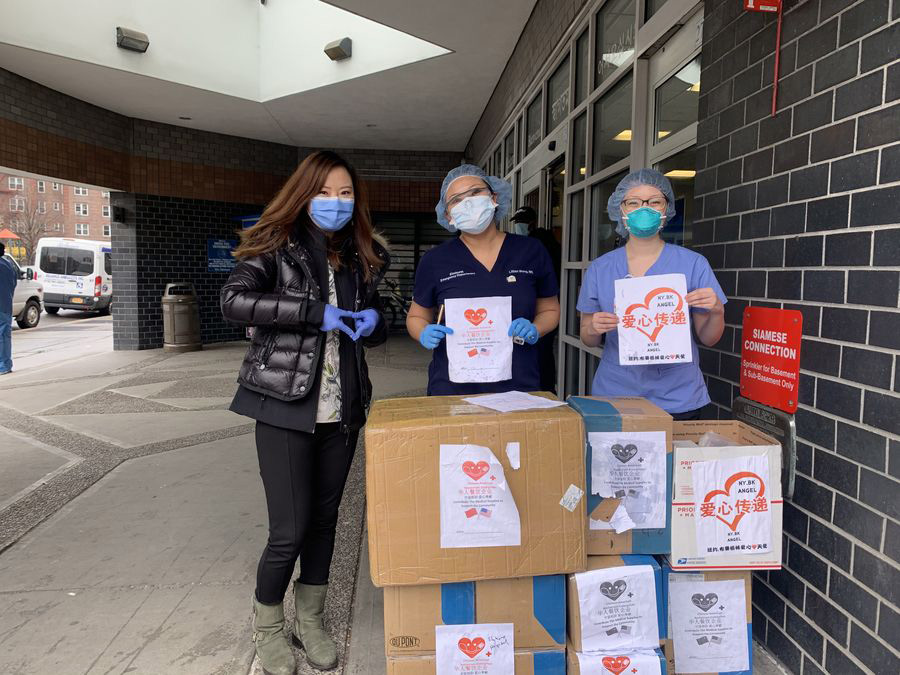


Imagine being trapped in a snowbound town: no electricity, no clean water, and food is running out. You give out everything you can offer, hoping to help the poor get through this difficult time. But one of your rich neighbors, while hoarding food for himself, mocks your acts of charity, calling it sub-quality, and says you are doing it just to boost your reputation or influence in the neighborhood.
It hurts, doesn’t it? That’s how it feels when you read the Wall Street Journal’s latest article titled “China Deploys Covid-19 Vaccine to Build Influence, With U.S. on Sidelines” and dozens of similar essays claiming that China’s vaccine donations to the developing world harbor a “hidden agenda”. Again, some media outlets still couldn’t help acting like “professional” judges, pointing fingers at an act they are too arrogant to believe. But vaccines are not like wine - they save lives, especially in developing countries where the medical infrastructure is not as advanced as in the U.S.
For months, China has been donating masks, ventilators, testing kits, and COVID-19 vaccines to other nations, even though it hasn’t fully recovered from the pandemic itself.

Volunteer Michelle Zhou (1st L) presents donations of medical supplies to staff members of Elmhurst Hospital in Queens of New York, the United States, on March 28, 2020. (Xinhua)
When the state of New York was in desperate need of ventilators, the Chinese government donated 1,000 machines to the once COVID-besieged place. When hospitals in Italy were at full stretch, Chinese doctors and nurses who hadn’t even had a chance to rest from the grueling battle with the deadly virus in their motherland came to the rescue. When African countries were hard hit by the COVID-19 pandemic, aggravated by natural disasters including a locust plague and famine, China dispatched medical teams carrying much-needed medical equipment together with millions of doses of COVID-19 vaccines.

Teodoro Nguema Obiang Mangue (R, front), vice president of Equatorial Guinea, and Chinese Ambassador to Equatorial Guinea Qi Mei attend a handover ceremony for COVID-19 vaccines in Malabo, Equatorial Guinea, Feb. 10, 2021. (Xinhua/ Li Boyuan)
On January 25, Chinese President Xi Jinping delivered a special address at the virtual Davos Agenda event, during which he specifically said that China will "make them (vaccines) public goods that are truly accessible and affordable to people in all countries." This month, China announced it would provide 10 million doses of coronavirus vaccines to developing nations through the COVID-19 Vaccines Global Access (COVAX) initiative. "We hope that capable countries in the international community can play an active role and take concrete actions to support COVAX as well as the WHO's work, so as to help developing countries receive vaccines in time and contribute to the global defeat of the pandemic at an early date," said Chinese Foreign Ministry spokesperson Wang Wenbin at a daily press briefing.
Related Reading: China providing vaccine aid to 53 developing countries: FM spokesperson
As the U.S. has a hard time delivering its “premium” vaccines evenly to its own citizens, not to mention donating vaccines to developing countries that don’t have any at all, please for the last time at least stop the smear campaign against other nations that are doing so. One comment under WSJ's article reads: “Providing vaccines to the developing world will save millions of lives. If we are in no position to do it, then we should be applauding, not criticizing the ones who are doing it.”
Related Reading: COVID-19 vaccination drive reflects racial disparities in the U.S.
“No man is an island entire of itself; every man is a piece of the continent, a part of the main,” wrote John Donne, an English poet, more than four centuries ago. That classic verse still resonates today. Lending a helping hand to other nations in need has never come with the aim of building geopolitical influence, but for saving lives, those of others, and also ourselves. Because in the fight against a global pandemic, no one is safe until everyone is safe.

 Award-winning photos show poverty reduction achievements in NE China's Jilin province
Award-winning photos show poverty reduction achievements in NE China's Jilin province People dance to greet advent of New Year in Ameiqituo Town, Guizhou
People dance to greet advent of New Year in Ameiqituo Town, Guizhou Fire brigade in Shanghai holds group wedding
Fire brigade in Shanghai holds group wedding Tourists enjoy ice sculptures in Datan Town, north China
Tourists enjoy ice sculptures in Datan Town, north China Sunset scenery of Dayan Pagoda in Xi'an
Sunset scenery of Dayan Pagoda in Xi'an Tourists have fun at scenic spot in Nanlong Town, NW China
Tourists have fun at scenic spot in Nanlong Town, NW China Harbin attracts tourists by making best use of ice in winter
Harbin attracts tourists by making best use of ice in winter In pics: FIS Alpine Ski Women's World Cup Slalom
In pics: FIS Alpine Ski Women's World Cup Slalom Black-necked cranes rest at reservoir in Lhunzhub County, Lhasa
Black-necked cranes rest at reservoir in Lhunzhub County, Lhasa China's FAST telescope will be available to foreign scientists in April
China's FAST telescope will be available to foreign scientists in April